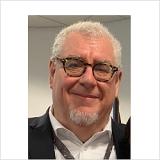Find a Therapist near Cambridge, MA
| Prev | Next |
Not finding the right therapist? Search for therapists in Somerville, Boston, or Brookline to expand your search.
Find a Therapist in Cambridge with GoodTherapy
It’s normal to experience mental health issues and relationship problems. Talking to a licensed therapist can help. Therapy can teach you more about yourself and your mental health concerns in a healing way. Many therapies are evidence-based and have been proven effective.
Since 2007, GoodTherapy has helped people like you connect with ethical, compassionate counselors and therapists. The therapists listed above, who practice therapy in Cambridge, are trained to protect client confidentiality and privacy. In keeping with our high membership standards, these mental health professionals are also committed to eliminating the stigma that keeps many people from seeking help.
If you are looking for a specific type of therapist, you can search for marriage or couples counseling in Cambridge or find a child psychologist or family therapist in Cambridge. You can also connect with Cambridge therapists who specialize in treating anxiety or depression. In addition, some therapists provide group therapy, which is typically a therapist-led session with multiple people.
Beliefs about how much therapy costs may deter some people from finding a therapist. It’s a good idea to contact therapists you’re interested in and ask about insurance, sliding-scale fees, payment plans, and other options to stay within your budget.
Rest assured there are qualified therapists in Cambridge who can treat a variety of concerns, including family conflict, relationship issues, anxiety, or depression. With our directory, the right therapist is easy to find.
List Your Practice on GoodTherapy
Are you a therapist or mental health professional looking for new ways to get referrals and market your practice in Cambridge? Keeping up to date with professional requirements and increasing your online presence are just two of the many benefits of joining GoodTherapy. Start connecting with clients and earning online continuing education credits today!
About Cambridge
Cambridge is a city in Middlesex County, Massachusetts. It has a population of over 110,000 people. Cambridge is home to several famous universities, including Harvard University and the Massachusetts Institute of Technology (MIT). More than 94% of Cambridge residents who are 25 years or older have graduated from high school. About 75% of residents in this age group have earned a bachelor’s degree or higher.
The population of Cambridge is 63% white, 15% Asian, and 10% black. The median household income is $83,100. Roughly 14% of people in Cambridge live below the poverty line.
Mental Health in Cambridge
In a 2013 study, over 11% of adults in Cambridge said they had a mental health condition that affected their ability to function. One fifth of adults reported binge drinking at some point during the past month. Roughly 9% of adult residents said they smoked marijuana that year.
The Cambridge Police Department (CPD) actively participates in mental health outreach. All members of the department are trained in mental health first aid and aggression management. The CPD is in the process of providing the entire department with a 40-hour Crisis Intervention Team (CIT) training program. This program will teach police personnel how to interact effectively with residents who have mental health issues and how to divert those residents from the criminal justice system to treatment.
References:
- Cambridge health indicators: Broad measures of health for Cambridge, Massachusetts, and the United States. (2013). Cambridge Public Health Department. Retrieved from http://www.cambridgepublichealth.org/publications/Cambridge-Health-Indicators-2013.pdf
- DataUSA: Cambridge, MA. (n.d.). Retrieved from https://datausa.io/profile/geo/cambridge-ma
- Mental health outreach. (n.d.). Cambridge Police Department. Retrieved from http://www.cambridgema.gov/cpd/communityresources/mentalhealthoutreach
- QuickFacts: Cambridge city, Massachusetts. (n.d.). United States Census Bureau. Retrieved from https://www.census.gov/quickfacts/fact/table/cambridgecitymassachusetts/PST045216









